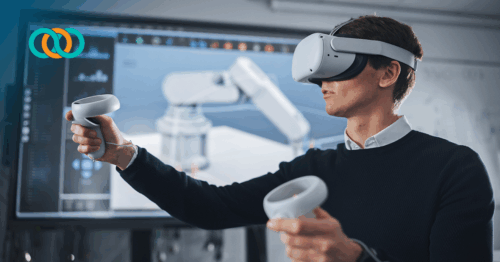Teaching adults is vastly different than teaching children. Children learn through direct instruction, while adults bring their experience and want active participation in their learning journey.
Adult learners need principles like self-direction, relevance, and problem-solving. Adult learning theory helps create engaging learning experiences that work better. Your success as a facilitator depends on knowing how adults learn best, whether you train professionals, teach in higher education, or lead workshops.
This article will explore the psychology behind adult learning and practical strategies you can use right away. You will learn proven methods to teach adults and ways to apply adult learning theory principles in your practice.
Understanding Adult Learning Psychology
Brain science has made remarkable discoveries about adult learning patterns. Research shows that at the time adults feel positive about learning, their bodies release endorphins and dopamine. These chemicals boost attention and help retain memories better.
Adult brains work differently from children’s brains. This understanding becomes significant as up to 375 million workers globally will need to switch occupations by 2030 due to technological changes. You learn how adults process new information.
These psychological factors shape the way adults learn:
- Self-Direction: Adults like to control their learning trip and use experiences to guide education.
- Experience-Based Learning: Practical, hands-on experience serves as a strong foundation for acquiring new knowledge.
- Goal-Oriented Focus: Our brains learn better with content that arranges with personal objectives.
- Immediate Application: Practical knowledge matters more than theoretical concepts.
The adult brain creates new connections through plasticity, a process that physically changes our neural networks. The right learning environment with multiple types of stimuli helps form these vital neural connections.
Emotions play a powerful role in the learning process. Research shows that emotionally charged events are remembered more vividly and for longer than neutral ones. To be effective, learning experiences should evoke the right emotional responses while being grounded in practical, real-world applications.
Essential Adult Learning Principles
Adult learning principles have shaped the way corporate training has been designed and delivered for decades. Malcolm Knowles, a pioneering researcher in adult education, identified six core principles that guide adult learning:
- Need to Know: Adults want to understand why they’re learning something.
- Self-Direction: Adults prefer autonomy in their learning experience.
- Life Experience: Adults use past experiences as learning resources.
- Readiness to Learn: Adults learn better when content relates to their life situations.
- Problem-Centered: Adults focus on practical solutions rather than theory.
- Internal Motivation: Adults respond primarily to internal drivers for learning.
Research shows that approximately 85% of adult learners respond positively to training that incorporates these principles. Adults want ownership over their learning experience. They aren’t blank slates waiting to be filled with information.
Adults learn best through experience and active participation. Their valuable life experiences become resources for learning. Traditional lecture-style teaching often falls short because of this approach.
Adults become ready to learn as they face ground situations that need new knowledge or skills. They look for immediate application instead of theoretical understanding. Problem-based learning works exceptionally well for adult education because of this practical focus.
These principles help us create learning experiences that strike a chord with adult learners and produce better outcomes.
How Facilitators Can Use Self-Direction, Relevance, and problem-solving to cater to adult learners
Adult learners have shown us that self-directed learning needs a well-planned approach. Research shows that 70% of learners feel they have the tools to identify their own learning needs. They still value guidance from learning facilitators.
These key strategies help create learning environments that work:
- Let learners control their pace and learning methods
- Build realistic scenarios for ground application
- Give multiple resource choices
- Let groups form naturally
- Create self-assessment options
Our role as facilitators moves from traditional teaching to coaching. We help students find materials and equipment they need to solve problems, rather than directing every aspect of learning.
Problem-based learning yields the best results through real-life, open-ended challenges without fixed solutions. Students from different backgrounds working together leads to improved communication and learning outcomes.
Adult learners need preparation for the language requirements of problem-solving activities. This approach brings linguistic benefits through natural, meaning-focused interaction and boosts student motivation.
Content must address immediate needs to stay relevant. Research shows that adults learn better when topics relate to their current priorities. Asynchronous, cohort-based courses give adult learners the flexibility they need while you retain control of the framework.
Conclusion
Adult learning principles change our approach to learning and development. Our study of adult learning psychology and Knowles’ principles shows adults learn differently. They need autonomy, practical uses, and links to their experiences.
Good facilitation creates spaces where adult learners can guide their own trip with proper support. We help learners find solutions through real-life problems that matter to them instead of lecturing.
Our experience proves that adult learners’ engagement and retention improve when we value their knowledge. We also give them chances to direct their learning. The results are worth it even though moving away from traditional teaching methods seems hard in the beginning.
Adult learning connects past experiences with new skills rather than just passing on information. These principles help us create better and lasting learning experiences that work for our adult students.
Download your copy of Elements of a Learning Journey
Ready to work with us?
Does your learning and development department have more projects than people? TrainingPros has been named as a Top 20 Staffing Company internationally by Training Industry. Coupling this award with being voted as a top Custom Content Development company internationally by our consultants for five years in a row underscores TrainingPros’ unwavering commitment to delivering high-quality, tailored training solutions. If you need facilitation consultants or virtual classroom producers skilled in hybrid training, contact one of our industry-expert relationship managers today. When you have more projects than people™, let us find the consultant to start your project with confidence. Schedule a consultation today.
- 1share
- LinkedIn0
- Twitter0
- Facebook0
- Love This1











